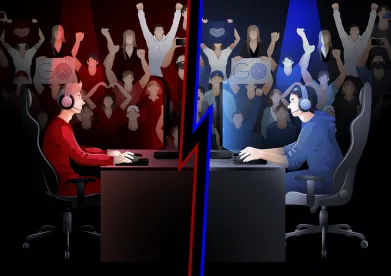In July 2018, the Superior Court of Québec held that the Québec government’s controversial attempt to force Internet service providers (“ISP”s) to block certain iGaming sites is
unconstitutional.
By way of background, on May 17, 2016, the Québec government passed Bill 74, which contained Internet-censoring provisions that were unprecedented in Canada. Bill 74 included a provision modifying the Québec Consumer Protection Act that would require ISPs to block persons in Québec from accessing unlicensed iGaming websites. Bill 74 empowered the body authorized to conduct and manage gaming in Québec (commonly known as “Loto-Québec”) to draw up a list of unlicensed iGaming sites and provide the list to the provincial gaming regulator (Régie des alcools, des courses et des jeux). The Régie would then send the list to ISPs operating in Québec, after which the ISPs had 30 days to block access to those websites.
A group of Canada’s largest ISPs commenced legal proceedings in July 2016 seeking a declaration from the Superior Court of Québec to the effect that the amendments to the Québec Consumer Protection Act relating to ISPs that would be affected by Bill 74 were unconstitutional and therefore of no force and effect. Also in July 2016, the Public Interest Advocacy Centre (“PIAC”) filed an application with the Canadian Radio-television and Telecommunications Commission (“CRTC”) objecting to the law on similar grounds. In September 2016, the CRTC temporarily suspended PIAC’s application while the constitutional issues went before the courts.
On July 24, 2018, the Superior Court of Québec ruled that the provincial rule creating mandated ISP blocking for unlicensed iGaming sites that compete with Loto-Québec is unconstitutional and ultra vires the powers of the province. The Court concluded that both the object and the effects of Bill 74 operate directly in two areas of exclusive federal jurisdiction: telecommunications and criminal law. The legal and practical effects of Bill 74 are outside of the scope of the provincial jurisdiction.
In his ruling, Justice Nollet cited the Telecommunications Act, which enshrines into law the concept of “net neutrality”, meaning that Internet companies should be neutral carriers of content and not favour certain sites over others, nor should they block access to certain sites. Section 36 of the Telecommunications Act states, “Except where the Commission [the CRTC] approves otherwise, a Canadian carrier shall not control the content or influence the meaning or purpose of telecommunications carried by it for the public.” Even though the CRTC has this power, it blocks sites sparingly and almost exclusively for safety-related concerns, i.e. security breaches.
The Court’s ruling is a major loss to Loto-Québec as the Court concluded that the law was designed to prevent competitive iGaming sites from being available in the province and not to protect consumer health as Loto-Québec had suggested. This conclusion is aided by the fact that Québec’s Minister of Finance had estimated the law could have added up to $27 million per year for the provincially-owned online gaming site “Espacejeux”.
What is certain is that this decision is a blow to provincial monopolies across Canada, which seek exclusive control of iGaming in Canada under the monopoly established by the Criminal Code. The ruling has sent a message to provincial governments: attempts to instigate Internet site-blocking schemes to further a province’s goals – whether economic or otherwise – will likely be unsuccessful. Deference must be accorded to the CRTC and, given their cautious attitude towards using their designated power to block websites, it seems unlikely that a province will be successful in their attempt to do so.
Does this decision represent a crack in the provincial monopoly? Will it encourage offshore iGaming sites to continue to target Canadians? Only time will tell.
It is important to note that the Québec government has the ability to appeal this ruling, but there has been no comment on whether it intends to do so.






 />i
/>i

